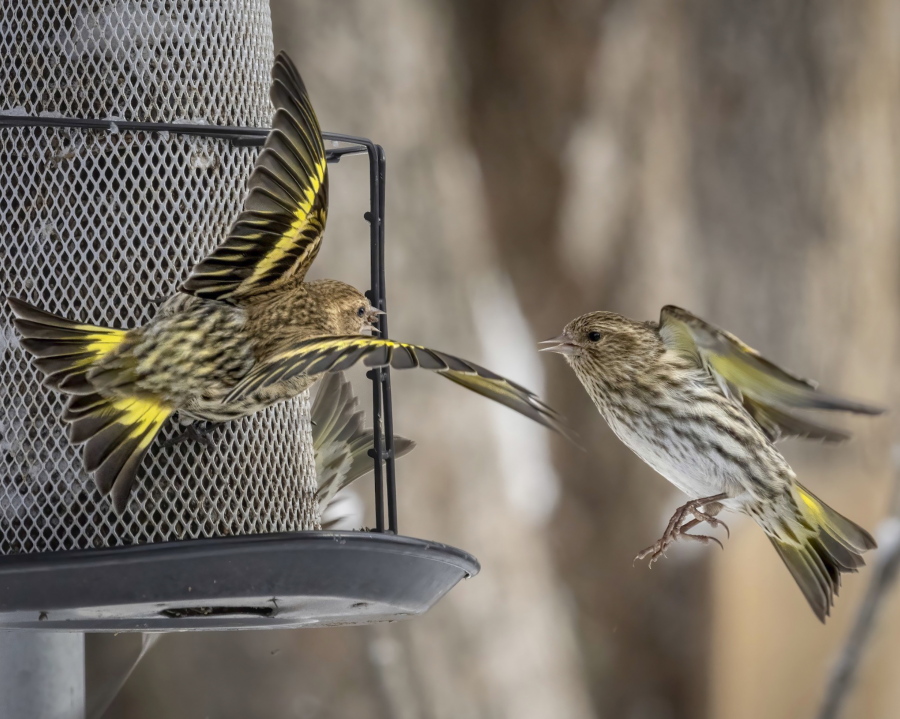If you’re planning to take part in the four-day, global Great Backyard Bird Count this month (Feb. 17-20), or if you just love birds, there’s plenty of gear and goods to help you enjoy them.
Recognizing & recording
Merlin and eBird are the apps recommended by the count’s organizers to help you identify birds, get acquainted with local species and enter your findings in a database. Others birding apps include iNaturalist, Song Sleuth and others more specific to regions or species, such as Raptor ID.
You’ll want a field guide, too. Chad Witko, senior coordinator of avian biology for Audubon’s Migratory Bird Initiative, lists some for U.S. bird watching: “There’s the National Audubon Society ‘Birds of North America,’ ‘The Sibley Guide to Birds,’ the Peterson Field Guide series, and renowned naturalist and birder Kenn Kaufman’s books.”
Witko recommends getting guides with paintings as well as photos so you can see more angles and variations of a species.
Note and sketch your own observations in a pocket-size waterproof notebook, such as those from Rite in the Rain and Field Notes.
Periodicals like Birds & Blooms and Bird Watcher’s Digest (BWD) offer birding basics.
Witko also recommends finding a birding mentor. Social media sites often have bird-watching groups where more seasoned birders share their knowledge and promote outings.
“So many tips, tricks, ID advice and more are passed down through generations of birders,” he says.
Bird spotting
Witko recommends binoculars with a magnification of 8x for beginning birders. That means you’ll see an object 800 meters away as if it were 100 meters away. “They’re the most versatile,” he says.
Aleta Burchyski, an outdoors writer and birder in Santa Fe, N.M., says it’s easy to spend $500 or more on field binoculars, but for casual birdwatching she has a pair of rugged Nocs, which go for $95, and are waterproof and fog-proof. They weigh significantly less than many higher-end binoculars, and the 8x magnification is enough to see feather and beak details.
Witko also suggests getting a longer strap than the one that comes standard with most binoculars.
“Buy one that can be extended to wear over the shoulder like a sling, or purchase a harness to keep the weight off your neck,” he says.
Harnesses can also help steady your focus. You’ll find options from outdoor brands like Nyack Exchange, Trummul and outdoors retailers.
Nocs makes a photo ring adaptor that attaches to binoculars and aligns your phone lens to them for photos and videos.
And digiscoping is a trend. You use a spotting scope to line up with your smartphone or camera to zero in and capture images more accurately than if you had just pointed your regular lens at the subject.
Feeders
Watching birds from your window can yield great results, and different bird feeders are designed to attract different birds.
“Tube feeders filled with sunflower seeds are great for most backyard birds, as are hopper or tray feeders,” says Witko. “Black oil sunflower seeds are hands-down the best and will attract the most species — chickadees, titmice, nuthatches, jays, doves, sparrows, grosbeaks and finches.
“I also recommend thistle feeders to attract finches like goldfinches, siskins and redpolls. And suet feeders for woodpeckers, nuthatches and wrens.”
If your feeder is on a deck or porch, consider “no mess” seed mixes that have no shells.
Bird Buddy’s AI-equipped feeder alerts you when winged visitors come calling. If you aren’t able to take the photo yourself, it will do that, and also identify the birds and organize the photos into a collection. A solar panel is available to power the gadget. Mount the feeder on a wall or post, and you can add suet balls or water dispensers too.
Squirrel-proof feeders hang on a branch or mount on a pole. Dunford’s has a metal skirt that drops when a squirrel tries to climb aboard, closing off the seed portals.
“Always keep feeders far enough from the house so that birds aren’t likely to fly into windows,” says Witko. Also, place feeders in an area that allows birds to hide if they need to, and that lets them see any approaching predators like cats and hawks.
Cleaning feeders is also critically important, he says.
Birdhouses
There are all kinds of birdhouses made of weather-resistant materials and painted in all kinds of designs. If you want to make your own, Duncraft and BestNest are among those with DIY kits, for wrens, bluebirds and purple martins.
Ornithological home decor
Just want to show your love of our avian friends indoors too?
From Charley Harper, the artist who was known for modern, graphic illustrations of birds, comes a set of decals that let you create your own migratory flock on a wall. Glassware features cardinals and other wild birds, and there are coasters, doormats and wall art, all at the Charley Harper Art Studio.
A more low-key flock can be found at West Elm. Mej Mej has a wall decal set showing a dozen watercolored birds; another includes a pair of bluebirds.



